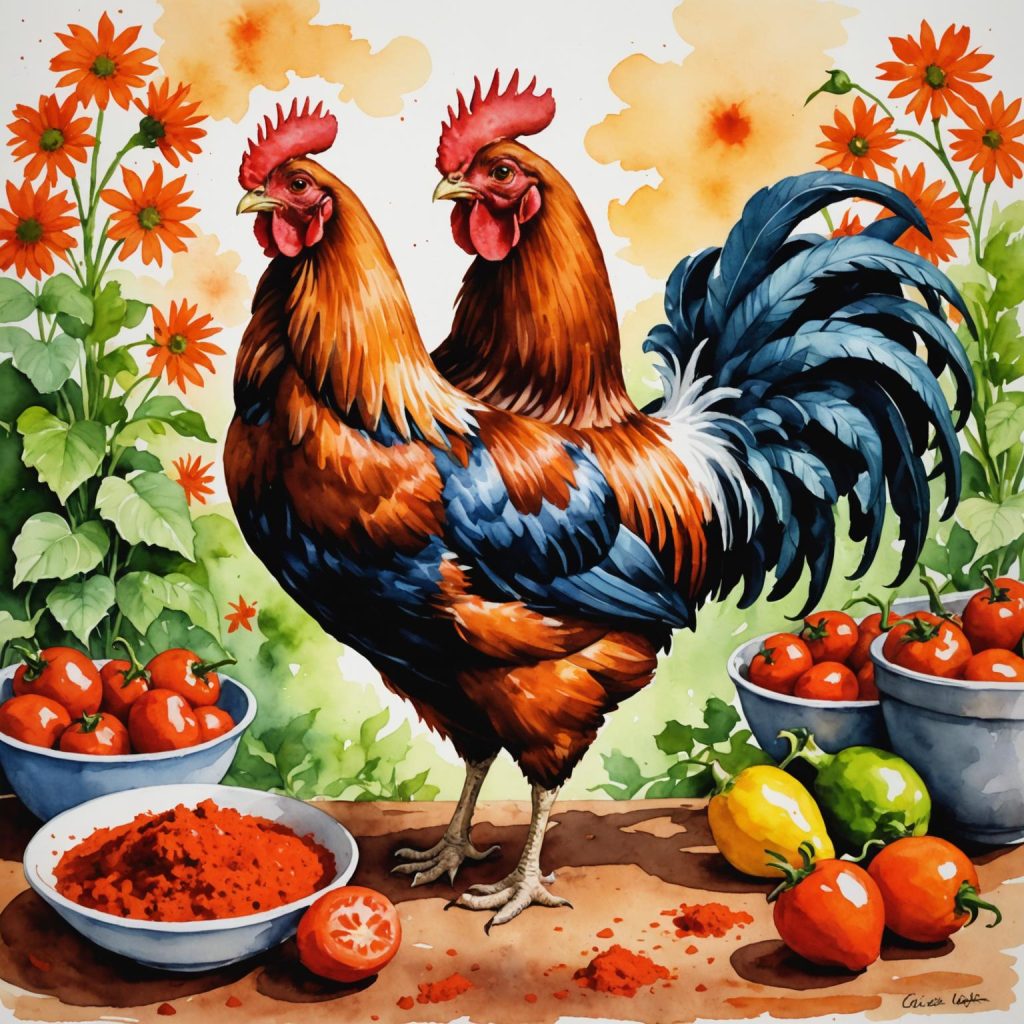In the world of backyard farming, chickens are known to have quite the diverse appetite. From bugs and worms to fruits and veggies, these feathered friends are always on the lookout for tasty treats.But what about something with a bit of a kick, like cayenne pepper? Can chickens handle the heat? Let’s dive into the spicy world of poultry diets and find out if cayenne pepper is on the menu for our feathered friends.
Table of Contents
– Understanding the potential benefits of feeding chickens cayenne pepper
Feeding chickens cayenne pepper can have several potential benefits for their health and well-being. Cayenne pepper is known for its medicinal properties and can help boost the immune system of chickens. It contains high levels of vitamin C, which can help prevent diseases and infections in poultry.
In addition, cayenne pepper can aid in digestion for chickens by promoting better gut health. It can also act as a natural insect repellent, helping to keep pests away from the chicken coop. incorporating cayenne pepper into a chicken’s diet in moderation can have positive effects on their overall health and productivity.
– Considerng the potential risks of feeding chickens cayenne pepper
Feeding chickens cayenne pepper can have potential risks that need to be carefully considered. While some people believe that cayenne pepper can definitely help boost egg production and improve overall health in chickens, there are several factors to keep in mind before incorporating this spice into their diet.
One of the main concerns with feeding chickens cayenne pepper is the potential for digestive issues. Chickens have sensitive digestive systems, and consuming too much cayenne pepper can lead to irritation and inflammation. Additionally,cayenne pepper can increase body temperature in chickens,which may cause stress and discomfort. It’s important to introduce cayenne pepper gradually and in small amounts to monitor how chickens react to it.
– Recommendations for safely incorporating cayenne pepper into chickens diet
Adding cayenne pepper to a chicken’s diet can have various benefits, including helping to improve their overall health and boost their immune system. Though, it is indeed essential to follow some recommendations to ensure that the chickens are consuming this spicy ingredient safely.
Here are some tips for safely incorporating cayenne pepper into a chicken’s diet:
- Start with small amounts and gradually increase the dosage to allow the chickens to get used to the spice.
- Mix the cayenne pepper with their regular feed or sprinkle it on their treats to make it more palatable.
- Monitor the chickens for any signs of discomfort or digestive issues after consuming cayenne pepper.
- Consult with a vet or poultry expert before adding any new supplements to your chicken’s diet.
Q&A
Q: can chickens eat cayenne pepper?
A: yes, chickens can indeed eat cayenne pepper in moderation.
Q: Is it safe for chickens to consume cayenne pepper?
A: Cayenne pepper is safe for chickens to eat as it possesses some health benefits for them.
Q: What are the benefits of feeding chickens cayenne pepper?
A: Cayenne pepper can help boost chickens’ immune systems, aid digestion, and act as a natural dewormer.
Q: How should cayenne pepper be fed to chickens?
A: It is recommended to mix a small amount of cayenne pepper with their feed or sprinkle it in their drinking water.
Q: Can feeding chickens cayenne pepper affect the taste of their eggs?
A: No, feeding cayenne pepper to chickens will not affect the taste of their eggs.
Q: Are there any negative side effects of feeding chickens cayenne pepper?
A: It is indeed critically important to monitor the amount of cayenne pepper given to chickens as excessive consumption may cause irritation or digestive issues.
Q: is it advisable to include cayenne pepper in chickens’ diets?
A: Yes, incorporating cayenne pepper in moderation can be beneficial for the overall health and well-being of chickens.
Key takeaways
while chickens can technically eat cayenne pepper in small quantities, it is important to monitor their intake and consult with a veterinarian before incorporating it into their diet. Remember, just like us, chickens have their own unique dietary needs and preferences. So, whether you’re considering spicing up their feed or simply curious about their taste buds, always prioritize the health and well-being of your feathered friends.Happy farming!
Meet Walter, the feathered-friend fanatic of Florida! Nestled in the sunshine state, Walter struts through life with his feathered companions, clucking his way to happiness. With a coop that’s fancier than a five-star hotel, he’s the Don Juan of the chicken world. When he’s not teaching his hens to do the cha-cha, you’ll find him in a heated debate with his prized rooster, Sir Clucks-a-Lot. Walter’s poultry passion is no yolk; he’s the sunny-side-up guy you never knew you needed in your flock of friends!







